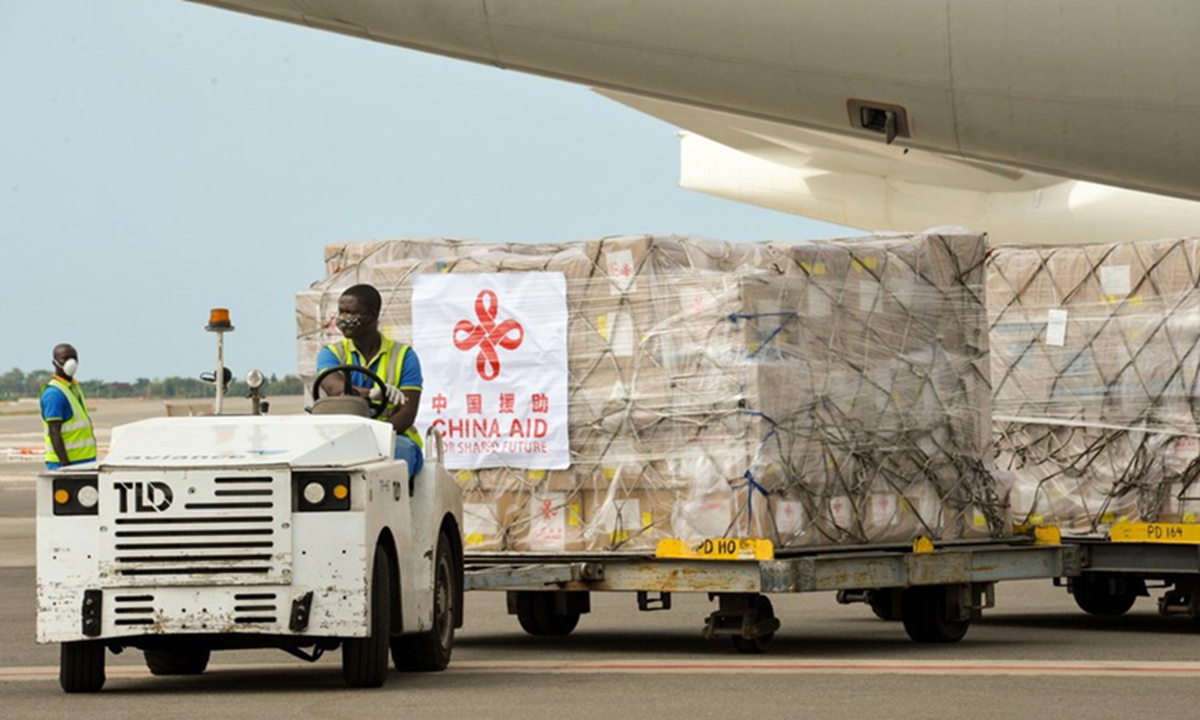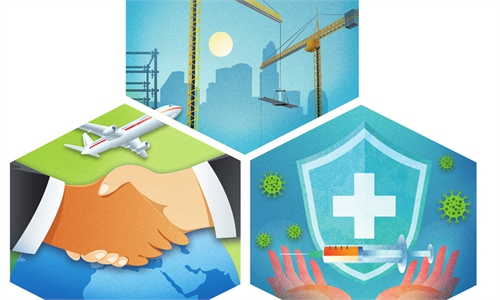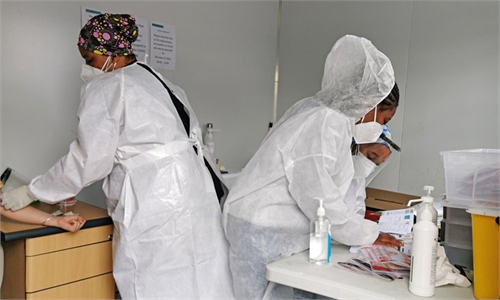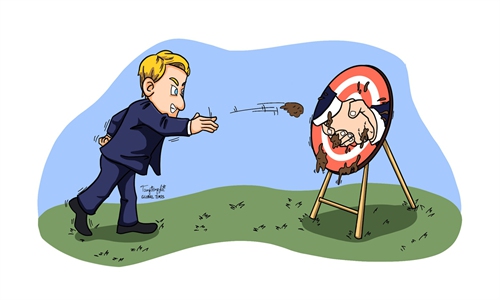COMMENTS / EXPERT ASSESSMENT
Regardless of motivations, Western countries’ return to foreign aid is good news

A staff member unloads Chinese medical supplies from an airplane at the Kotota International Airport in Accra, capital of Ghana. Photo: Xinhua
Declaring "America is back" in his first big presidential moment after coming into office, US President Joe Biden pledged up to $4 billion to help get poorer countries vaccinated against COVID-19 at Friday's Group of Seven (G7) meeting of world leaders.In a similar "coming back" gesture, French Foreign Minister Jean-Yves Le Drian on Wednesday announced a 15-billion-euro plan to reinvest in public assistance to Africa, which Le Drian believes will draw France into "wars of model and influence" with China.
No matter what calculation is behind the Western countries' "return," China, as the most important development partner of African nations, actually welcomes all efforts to help developing countries and less developed countries to resolve COVID-19 crisis.
After a brutal 2020, the coronavirus continues to struggle in the health crisis. African countries actually need more funding support to tackle the plague, and realize economic recovery at the earliest time.
On the one hand, risks continue to accumulate when it comes to African countries' development. Many countries' efforts have stalled in pursuit of the goals in governance, gender equality, social equity and other aspects of the 2030 Agenda for Sustainable Development. As the impact of the pandemic is increasing, it is possible to see the progress made since 2015 to be erased by the plague.
On the other hand, the funding gap in the field of humanitarian assistance has widened. Violent and non-violent protests have broken out more frequently. Many multilateral humanitarian agencies including the United Nations World Food Program are facing significant funding gaps.
The pandemic has inflicted wounds on major economies. To ease aggravated domestic problems, many developed countries have cut their budget for international public assistance programs. While this directly heightens the challenges developing countries face in their development, some Western countries have noticed the impacts on their international influences.
Le Drian has made no secret of France's intention to expand international influence. The French foreign minister didn't hide his concerns over China's rising clout, saying that France had "somewhat disappeared from" foreign assistance.
Apparently, the major consideration behind France's aid plan to Africa is to revive its past colonial fantasy - restore exclusive influence on African countries while prevent other non-African countries from building partnerships there.
The US' recent policy shift seems out of similar calculations. During the Trump administration, former National Security Adviser John Bolton was fired shortly after he unveiled the New Africa Strategy. During Trump's tenure, there is not much which could be considered African policy. In a reversal of his predecessor's US-centric approach, Biden used his first big presidential moment at the G7 Summit to ramp up pressure on America's wealthiest allies to get COVID-19 vaccine doses into poor developing countries.
However, as long as Western countries implement their pledge to help African countries to endure the pandemic impact, it should be taken as good news. For the sake of African countries and the common interests of developing countries, China is willing to conduct cooperation with Western countries to jointly support inclusive development of developing countries and in particular least-developed countries.
The Organization for Economic Co-operation and Development's (OECD) Development Assistance Committee (DAC) has been promoting inclusive development goals. China recognizes and continues to uphold that development must overcome exclusivity. With the consent and active participation of recipient countries, China is willing to discuss tripartite cooperation with developed countries on development assistance, and give full play to the comparative advantages of all parties.
The pandemic has exacerbated the challenge of global development. Developed countries' adjustment in aid policy is a good thing for the development prospects of developing countries. For the majority of aid recipient countries, there are no so-called wars of model and influence. How to deal with the development crisis and jointly promote and implement the the 2030 Agenda for Sustainable Development is the common concern of developing countries.
The author is an associate research fellow at the Chinese Academy of International Trade and Economic Cooperation under the Ministry of Commerce. bizopinion@globaltimes.com.cn



